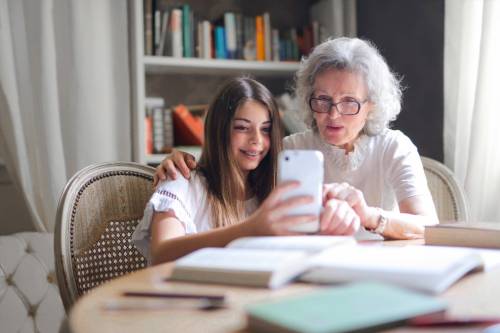Mediation & COVID-19
The process of litigation in family cases can often be replete with difficulty for clients: litigious action can be time-consuming, emotionally draining, and often involves a precipitous escalation of legal fees for both sides; parties are often less amenable to the prescriptions of a Court Order than an agreement reached voluntarily; and the adversarial nature of court proceedings – particularly when it inflames acrimony between the parties – is rarely, if ever, in the best interests of any children involved in the matter.
At Laurus, one alternative option that we often encourage is the use of mediation to resolve disputes as peacefully, efficiently and cost-effectively as possible.
While, in many cases, it is necessary to take matters to a Final Hearing – in order to ensure that a client’s best interests can be fully protected – it is often the case that parties can explore other methods of resolving disputes.
To this end, statutory rules have placed emphasis on encouraging parties to explore non-court solutions in family cases. Section 10(1) of the Children and Families Act 2014 outlines that before making a relevant family application, a person must attend a family Mediation Information and Assessment Meeting (‘MIAM’), in which they will be advised about the prospect of resolving the matter through mediation.
The Process of Mediation
In a MIAM, a mediator will initially provide parties with the opportunity to discover how mediation works, what the associated costs are (and whether these might be covered by legal aid), and if mediation is appropriate in the circumstances of the individual case. Should the parties decide, based on the MIAM, to proceed with mediation, we are fully equipped to facilitate that process.
There are various benefits to mediation for families. Firstly, parties will not need to stick to court timetables and will instead be able to conduct the process at their own pace. Secondly, mediation is a useful method of preserving amicable relations, and the process encourages parties to improve their communication with one another – this is particularly important for parents who wish to work co-operatively after separating. Thirdly, mediation allows parties to consider a broader range of personal factors when coming to an agreement, which might not otherwise be considered in court proceedings. Finally, as stated earlier, evidence shows that solutions arrived at voluntarily are generally more effective and enduring than Orders imposed by a judge.
The Family Mediation Council code outlines that mediation must be voluntarily participated in by each party. Furthermore, mediators cannot seek to impose a preferred outcome, must always be impartial, and must not discuss the mediation with anyone without the consent of the participants.
At Laurus, we have the right expertise and judgment to work impartially in mediation, in order to assist parties in constructively negotiating and finding common ground. We also have extensive experience working with children to make the entire process child-focussed; this means that children are better protected and can have a greater voice in deciding their best interests.
Mediation During the Covid-19 Crisis
The recent Covid-19 pandemic has tragically caused grave loss of life and immense economic uncertainty on a global scale. One by-product of the pandemic has been that the impetus to adopt new technological solutions within the legal sector has been dramatically accelerated. This transition has caught many courts and law firms on the back-foot, but has provided us with a unique opportunity to expand our service to clients to ensure that their needs are met in full.
At Laurus, we already have the facilities in place to conduct video conferences with clients and advise them – as closely as possible – on a face-to-face basis. For clients who are not experienced with video conferencing, we have the experience to take them through the technology until they are comfortable using it – either for online consultations, appearances in court, or indeed, for mediation sessions.
As such, we are fully prepared to conduct mediation sessions remotely. At this unprecedented time, we believe it is more important than ever for parties to consider working together in order to reach effective solutions and minimise conflict. Should you be interested in exploring mediation as an option – or would like advice as to the full range of legal options available to you – we would be delighted to hear from you.
If you have any questions about the process, please do not hesitate to email us at william.hogg@lauruslaw.co.uk or call our Family Law Team at 020 3146 6300.






